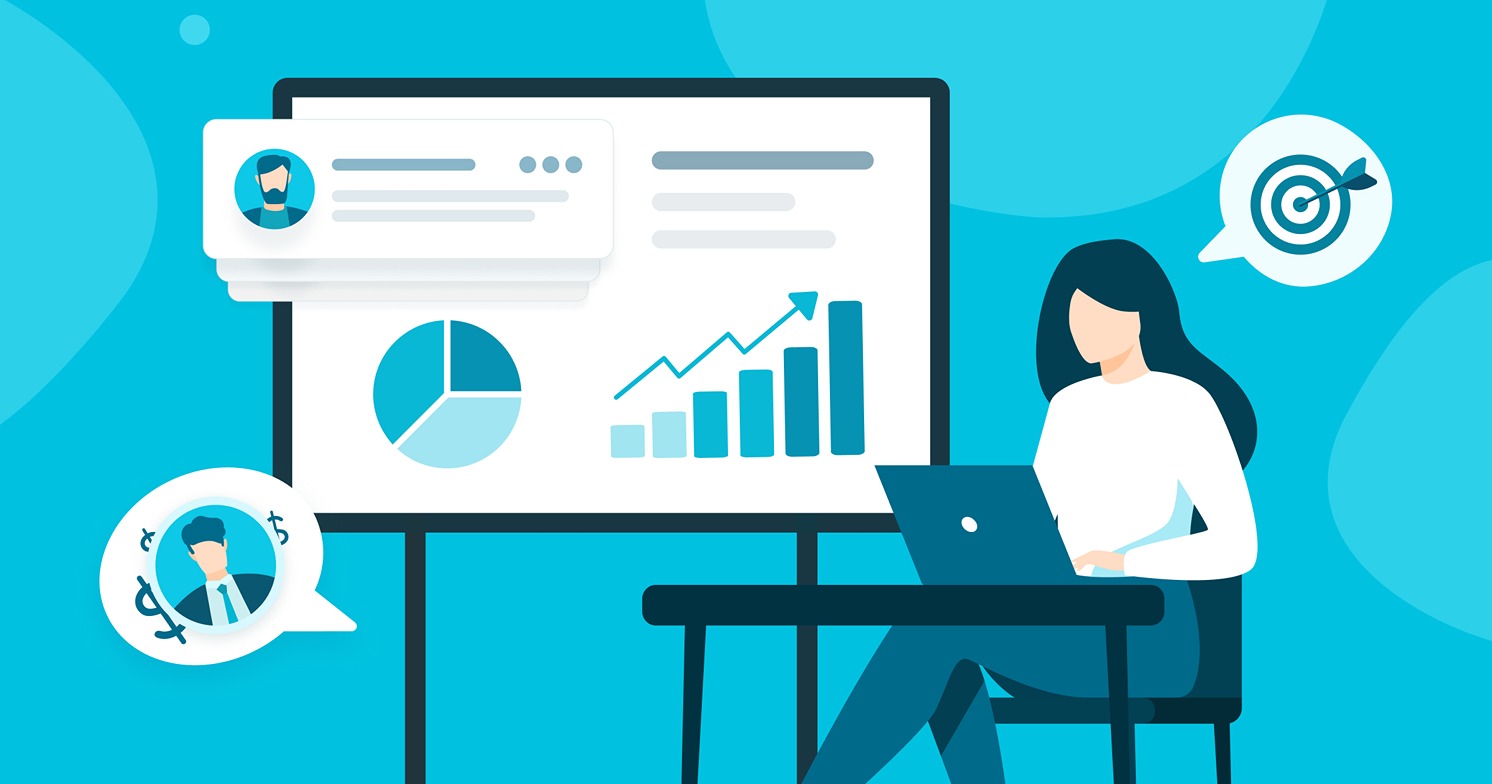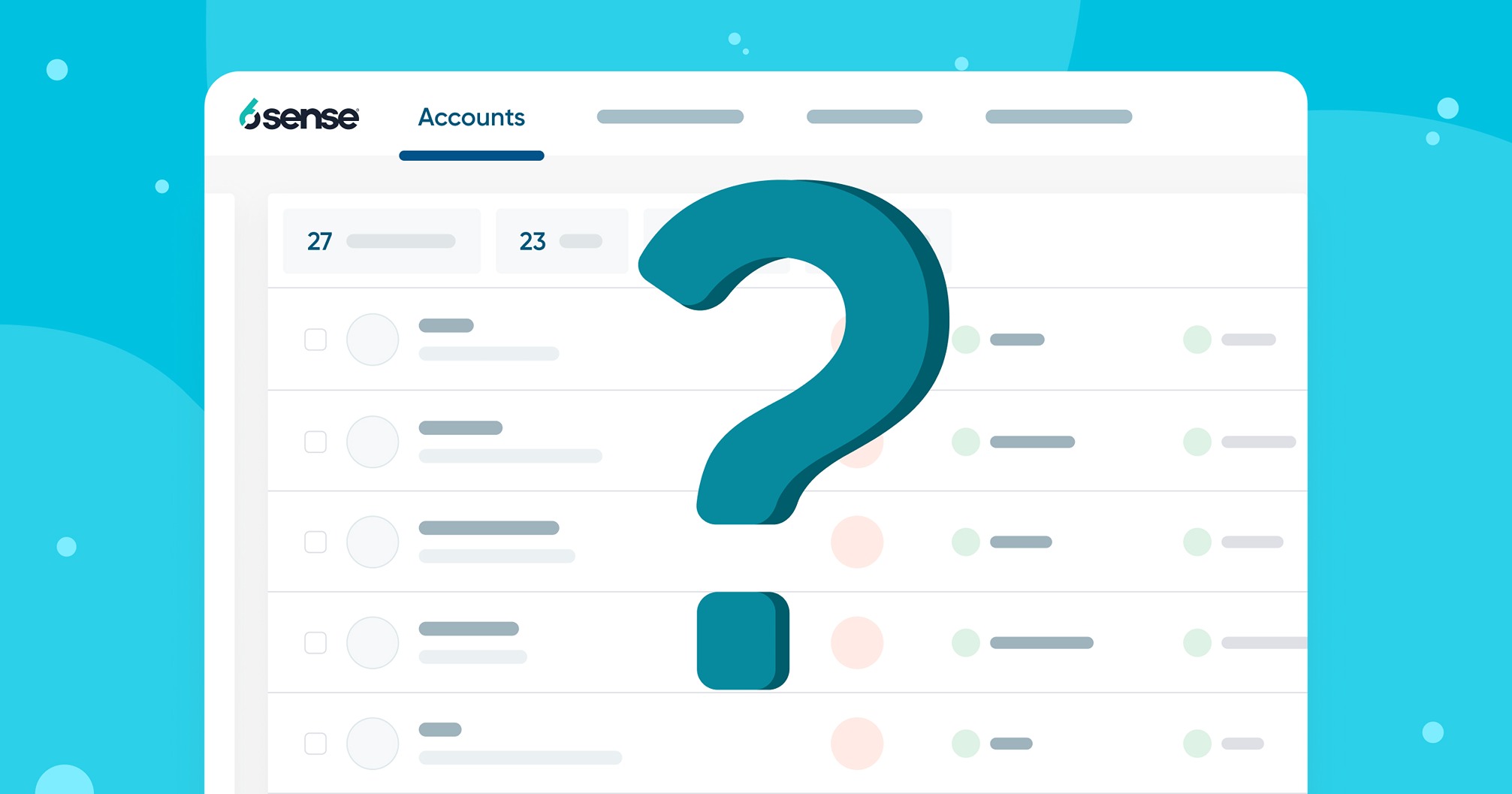Successful marketers already know it’s crucial to stay on top of emerging trends to communicate effectively with their audience. Yesterday’s cutting-edge tactics might be totally obsolete today.
That’s never been truer than in 2024, with Artificial Intelligence (AI) and other powerful new capabilities transforming the marketing landscape like never before.
It can be hugely challenging for even the most seasoned marketer to handle all the opportunities arising to drive B2B sales and other critical success metrics.
Now is the perfect time for marketers to take stock of current tactics, consider fresh approaches enabled by new technologies, and ensure their strategies take full advantage of everything 2024 offers in B2B marketing.
Top 12 B2B Marketing Trends for 2024: Key Information
To make sense of all the enthusiasm around new developments in B2B marketing, we’ll look at 2024’s emerging trends individually and explain how each can be utilized to keep marketers at the top of their game for the coming year.
B2B Trends for Content Marketing
Content marketing is one of the key ways savvy marketers generate demand and build awareness of products and services with a wide audience of potential customers.
B2B content providing insights that answer user needs can also generate valuable leads, with data-driven reports and informational videos highly sought after by prospective customers actively seeking solutions.
Rapidly developing AI tools enable marketers to create content more easily and faster than ever.
As this trend continues in 2024, more marketers will find their priorities shifting away from keeping up with the demand for fresh content and toward ensuring that that content is hyper-relevant and hyper-targeted to their audience.
New technology is poised to alleviate some of the biggest problems marketers face in B2B content creation, including lacking resources (58%), aligning content with the buyer’s journey (48%), and access to subject matter experts (39%).
B2B marketers will also increasingly discover that they are not just competing with other business content for attention but with a wide array of videos, photos, music, news, and social posts all vying for consumers’ time and attention.
While B2B marketing content isn’t necessarily known for its entertainment value, that will change as marketers seek to differentiate their marketing from the unprecedented amount of other content users will confront in 2024 and beyond.
Social Media Marketing for B2B

In recent years, B2B marketers have felt pressure to create an assortment of content across every major social media platform, trying to reach customers in as many places as possible.
That’s changing in 2024; marketers will move away from content creation across every available platform and turn toward reaching their audience on the right platform.
Content will be optimized toward each specific platform’s user experience rather than attempting to create one-size-fits-all content that will work across several different social platforms. It would also be advisable to use specific ChatGPT prompts for Instagram or other social platform to create engaging content.
Digital media professionals believe that social media holds more potential for innovation in 2024 than any other media type.
Social listening, already a common practice in B2C marketing, will increasingly be adopted by marketers looking to boost B2B social media conversion rates above the overall average across social platforms, which hovers between 1% and 2.1%, depending on the business category.
B2B marketers have also cited social media as the #1 most effective B2B channel that drives revenue.
Social media is no longer just a B2C platform. Take a look at these fascinating case studies on B2B social media marketing and just how successful social media can be in attracting B2B clients.
Artificial Intelligence (AI) is Everywhere
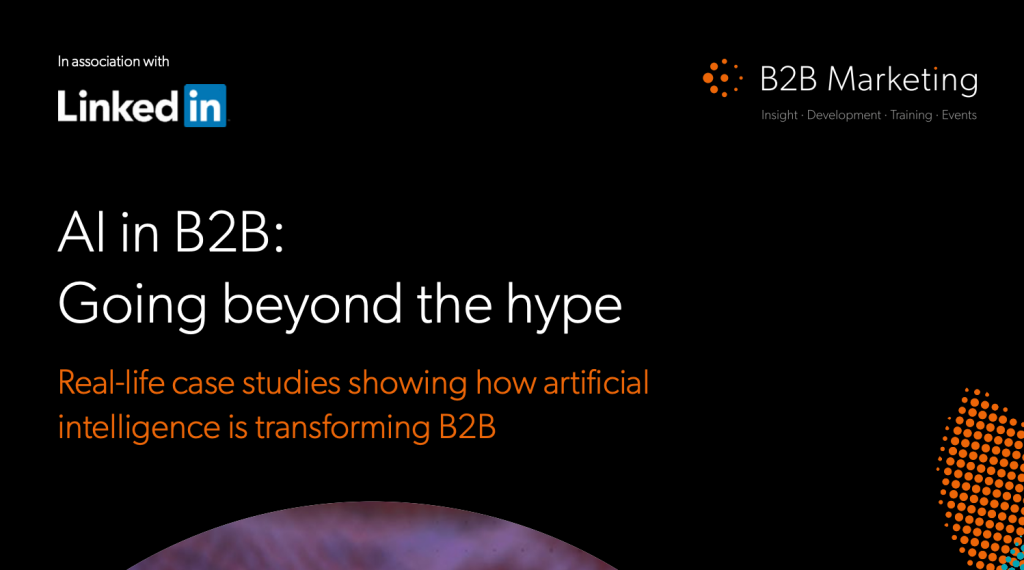
This one should come as no surprise. AI has been the biggest buzzword in business for the last couple of years, and it is predicted to be as transformative for businesses as the widespread adoption of the internet back in the 1990s.
AI’s seismic impact will be felt even more in 2024 as more and more businesses utilize AI in their core functions and internet users grow more familiar and comfortable with its presence in their daily lives.
Enterprise AI is driving this shift by integrating advanced machine learning and automation directly into business operations, unlocking new levels of efficiency and innovation.
This is great news for marketers, who will be empowered with tools they couldn’t imagine would be possible just a few years ago.
Last year, 64% of marketers reported that they were already using AI, with an additional 38% planning to integrate AI into their marketing in 2024.
While this means a significant number of marketers are already experimenting with AI, it doesn’t necessarily mean those who haven’t will fall behind the competition — yet.
AI may intimidate or even overwhelm those who have yet to explore its possibilities, but there is still time for newcomers to get in on the AI action.
Lisa Gately, Principal Analyst at Forrester, believes most B2B marketers are still “at a stage of learning and exploring” AI, meaning it’s not too late to take advantage of this wealth of new opportunities in order to gain a competitive advantage in 2024.
LinkedIn recently released a fascinating list of case studies showcasing how AI is actively being used in B2B marketing. From web design to customer engagement, companies leaning into cutting-edge AI capabilities are winning greater market share.
Video Marketing is More Important Than Ever
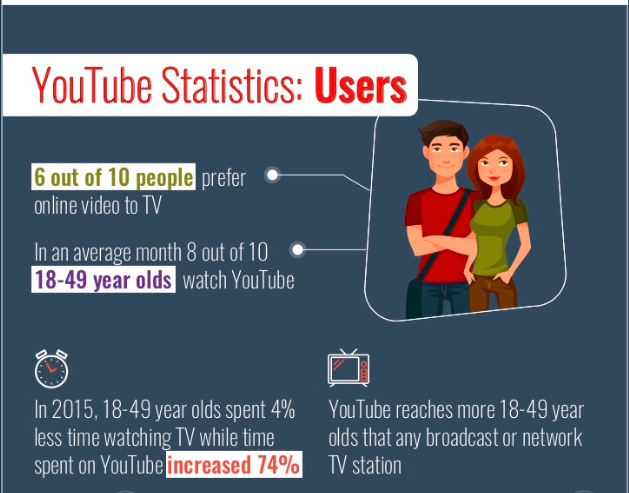
Most marketers are well aware of video’s steady rise in popularity over the past decade, with 51% of internet users saying they are more likely to share video content than any other format.
Of course, generating high-quality videos that connect and convert is easier said than done. Creating competitive video content has traditionally been time-consuming, requiring a particular skillset not every marketer has at their disposal. Production costs have also been prohibitive to businesses that might otherwise adopt video formats.
The good news in 2024 is that these barriers are lessening by the day, with AI tools enabling B2B marketers to create professional-quality video content with ease and speed, at a fraction of the cost.
It should come as no surprise that YouTube remains the dominant platform for B2B video content.
However, more marketers are expected to experiment with Instagram Reels, Facebook Stories, and TikTok in 2024, with 48% of B2B video content directed toward brand awareness at the top of the funnel.
Following trends seen in B2C marketing in recent years, B2B content will become more vertical, better suited for mobile viewing, and shorter in length to better align with social viewing habits.
Devices and innovations that make videos more immersive and clickable will also help businesses reach a wide range of marketing and sales prospects in the year to come.
Hyperpersonalized B2B Marketing Campaigns & Experiences
There is no shortage of content to grab your audience’s attention across the internet. Like everyone else, business decision-makers make split-second decisions about what they watch, click on, and engage with, scrolling past or swiping away from content they deem generic or irrelevant.
That’s why 2024 will see more hyper-personalization in all forms of marketing. Hyperpersonalized marketing is a data-driven, AI-powered tactic that takes content beyond being merely relevant, into actually anticipating B2B customer needs in real-time.
Hyperpersonalization will become especially vital at the bottom of the marketing funnel where prospects are on the verge of making a decision but still have a multitude of competitors vying for their attention.
Campaigns will become increasingly experiential in 2024, attempting to create high-quality, memorable relationships with B2B audiences in order to cut through the clutter.
Increase in Account Based Marketing (ABM)
Companies looking to shorten sales cycles and boost customer retention rates increasingly turn to Account Based Marketing (ABM) tactics.
For those unfamiliar with the term, Account Based Marketing is a tactic that reverses the typical sales funnel, honing in on key accounts first and working backward from there.
In identifying decision-makers most in need of their products or services upfront, marketers’ messaging can be highly targeted and specific right out of the gate, cutting down on the time and effort required by broader, more traditional tactics.
ABM also focuses B2B marketers on reaching multiple decision makers at once rather than pursuing a single lead, increasing the odds of moving someone down the funnel.
Account Based Marketing is an ideal way to increase customer retention, as more personalized outreach catered toward unique and specific needs fosters a closer working relationship between marketers and their clients.
Some of the key ABM tactics B2B marketers will lean into include using B2B databases to identify the strongest possible targets, creating personalized one-to-one videos, and sending creative gifts to desirable decision-makers at key organizations.
New Channels Are Gaining Popularity for B2B Marketing
Following the growing importance of influencers in B2C marketing, a parallel trend is on the rise in B2B marketing.
Thought leaders are the influencers of the B2B world but may hold even more sway over their audiences because of their vast industry knowledge, influential positions, and years of expertise in their fields.
Thought leaders tend to gravitate toward platforms where they can share highly targeted short- and long-form content, including LinkedIn and business-centric audio formats.
Podcasts offer an opportunity to reach highly engaged listeners with long-form audio in a growing medium.
The number of worldwide podcast listeners is projected to rise from 275 million in 2019 to 505 million this year.
LinkedIn is also an increasingly valuable destination for B2B marketers, with 82% reporting that they have more success on LinkedIn than any other platform.
Incorporating LinkedIn into B2B marketing strategies is essential in bottom-of-funnel tactics, with 4 out of 5 LinkedIn users reporting that they play a key role in driving business decisions.
The Rise of Voice Search in B2B Marketing
Voice search is another rising trend gaining traction in 2024, with more and more users turning to Siri, Alexa, and other voice assistants to provide them with information.
By 2027, over half of internet users in the United States are expected to use voice assistants, whether on smartphones, connected cars, smart speakers, or other devices.
While that alone may not seem surprising, marketers may not yet be aware that Gen Z is adopting voice assistant technology at a faster rate than other age groups.
As Gen Z ages into becoming decision-makers in their organizations, voice search will increasingly become second nature as a search tool, meaning B2B marketers will need to make sure their SEO is optimized toward the unique ways people phrase their queries on these devices.
B2B Marketing Trends for Chatbots
Chatbots have become a fixture across all types of websites and apps, including many on the B2B customer journey.
Their human-like communication skills provide a more interactive experience for customers than most other methods of seeking business information.
In 2024, more businesses will turn to chatbots for lead generation, customer engagement, payment processing, and other needs, with AI and machine learning-based language models enhancing their capabilities and success.
Market growth for chatbots is projected to rise 470% from last year over the next four years, from $12 billion in 2023 to $72 billion in 2028, meaning this tech is here to stay for the foreseeable future.
Marketers keeping up with the latest trends should seriously consider adding chatbots to their sales pipeline this year if they have not done so already.
Automation is Enhancing B2B Marketing Workflows
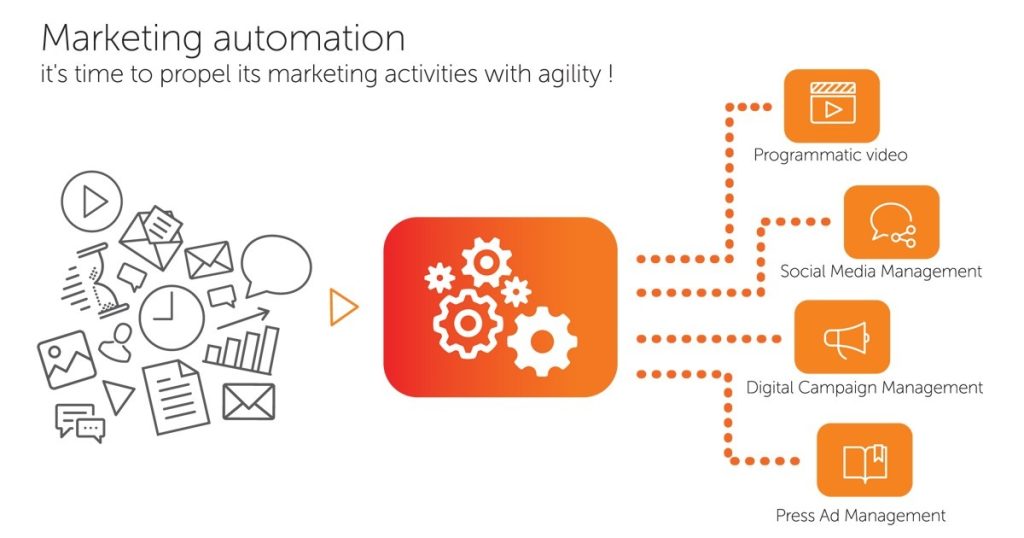
Most B2B marketers spend significant time searching for potential customers, building lists, and crafting content and communications they hope will convert to sales further down the funnel.
One of the most transformative developments B2B marketing will see in 2024 is the automation of outbound marketing powered by AI.
By 2025, 30% of outbound marketing messages will be synthetically generated, up from less than 2% in 2022.
Data providers like ZoomInfo, Lead411, and Uplead can help marketers identify high-quality B2B leads, further freeing them up to expend their energies elsewhere.
Data and predictive analytics can also be used to find decision-makers who have signaled purchase intent and, thus, are most likely to convert.
Ethics & Sustainability Matter
In the past several years, consumers have become increasingly vocal about brand preferences aligning with their values.
That extends to B2B customers as well, who tend to gather lots of information and consider carefully before making a purchase decision.
While AI opens up seemingly boundless possibilities for innovation, these new opportunities do not come without a handful of ethical concerns executives and entrepreneurs must consider.
Businesses that bring human values to their invocation of AI will see an advantage over those that are reckless with data privacy and related concerns.
Building trust is a critical component of successful B2B relationships, so businesses can’t afford to prioritize the conveniences of AI over integrity, quality, and ethical practices.
New legal mandates around carbon efficiency and other sustainability efforts will also take effect in 2024 and beyond, as 49% of U.S. consumers say their concerns around climate change have grown over the last two years.
Businesses that are vocal and transparent about their long-term sustainability efforts will have a competitive edge over those more short-sighted.
B2B Marketing Competition is Growing
With the above trends providing many new opportunities to connect with customers, the B2B marketing landscape is only growing more competitive.
AI has empowered businesses in every industry to deliver a higher volume of more personalized and data-driven content than ever before.
Successful B2B marketers will seek to level up by exploring new partnerships and platforms that generate high-quality leads to build brand awareness and ultimately drive sales.
Staying On the Forefront Of B2B Marketing Trends
With B2B marketing trending in numerous different directions, there are a few tactics every marketer should keep in mind to stay ahead of the curve.
Pay Close Attention to Data and Behavior Insights
We live in a data-driven world. That’s especially true for business decision-makers. Data and behavioral insights tell us who our customers are, what they want, and what they value, all of which are beneficial in shaping strategy and messaging.
Speak With Industry Leaders
Industry leaders are the first to drive the adoption of new trends and technologies.
Talking to them about what they’re seeing, hearing, and trying out is a great way to learn what trends work for them — and which ones are not so successful.
Attend Events to Gain Knowledge
Attending in-person events when possible or webinars remotely is essential to ensure that marketers gain the same industry insights as their competitors.
Read Industry News Regularly
Staying current on industry news means being among the first to hear of emerging trends and technologies that could be the next big thing in any field.
Check Up On Your Competitor’s Strategy
While marketers may feel they’ve explored every possible avenue to optimize their sales process, new capabilities come to light daily.
Taking stock of a competitor’s strategy can inspire fresh ideas and give marketers an outsider’s perspective on how funnels look from a customer’s point of view.
FAQs About B2B Marketing Trends
Here are the key takeaways from the most frequently asked questions about where marketing is headed in 2024.
AI and machine learning will become increasingly integral parts of B2B marketing in the coming years, unlocking powerful new potential in every step of the process that has only just begun.
While B2B marketing is typically slower to adopt cutting-edge trends than B2C, expect that gap to contract in 2024 as B2B content follows trends toward short-form and mobile-friendly video, voice search, and hyper-personalization.
Account-based Marketing tactics and automation of outbound messaging are two of the biggest trends affecting B2B selling in 2024.
Yes, absolutely. B2B marketing technology spend is projected to reach $8.51 billion in 2024, up 14.9% over 2023.
What You Need to Remember About B2B Marketing Trends
It’s an exciting time to be a marketer, as 2024 enables B2B marketers to reach their customers in new and unprecedented ways.
Marketers should be highly strategic, well informed, and willing to experiment with the previously untapped possibilities AI and machine learning afford — and be prepared for a few surprises as this technology moves forward.
Businesses that embrace innovation and stay current on emerging trends can expect to stay ahead of their competitors.

